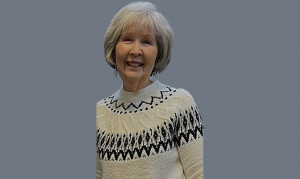Having listened to several presentations regarding the vices and merits of the Common Core State Standards, I have noticed that many arguments seem to be ancillary to the issue at hand — the Common Core State Standards themselves.
As a parent with four children in our public schools and both my husband and I being math tutors or having tutored in the past, we have seen first-hand the struggles children are having with the standards. So, I decided to read the math standards for myself.
In doing so, I discovered that there are two sets of standards. First, there are the “Standards for Mathematical Practice,” which is essentially a set of eight approaches that act as a framework for a second “Standards for Mathematical Content.”
The Standards for Mathematical Practice includes: (1) Make sense of problems and persevere in solving them; (2) Reason abstractly and quantitatively; (3) Construct viable arguments and critique the reasoning of others; (4) Model with mathematics; (5) Use appropriate tools strategically; (6) Attend to precision; (7) Look for and make use of structure; and (8) Look for and express regularity in repeated reasoning.
The Standards for Mathematical Content refers to the actual mathematical content that students are expected to learn and master. When designing the affiliated curricula and assessments for these standards, designers of curriculum and assessments “should all attend to the need to connect the mathematical practices to mathematical content in mathematical instruction” (Common Core for Mathematics, pg. 8).
After viewing the sets of mathematical standards, I am less concerned with the Standards for Mathematical Content than with the Standards for Mathematical Practice.
This is because, when it comes to the content standards, I recognize that grade-level content is challenging, but with dedicated parents and professionals, our children can master these standards.
However, I am concerned with the forced application of the Practice Standards within the curricula. Now that I know these Practice Standards, I understand why my husband and I, even with extensive math experience, have had to confer with one another on more than one occasion to understand the word problems presented to our second grader and our fifth grader.
The problems were intended to have the student “make sense of problems and persevere in solving them.”
While I certainly appreciate being academically challenged, I fail to appreciate the merits in writing problems that, at best, are rigorous and challenging and at worst, convoluted and confusing.
I also fail to appreciate presenting these standards of practice at a psychological and developmental stage where children are learning the fundamentals of math.
As a learning consultant, it has always been my practice to make the teaching a new skill very rudimentary at first, and reinforce it with application, before advancing to higher levels of practice standards identified, particularly in standards 1, 2, and 3 above.
One other concern I have with the Common Core State Standards is really from the parents’ point of view.
Many of us learned math in the traditional way. But, in recent years, we’ve seen integrated math, new math, changing standards, and it’s hard for us to keep up.
When tutoring children (either those of other parents or our own) my husband and I recognize it is not enough to know math, we have to also understand how the standards are being taught so that we don’t hear, “well, that’s not how Mrs. Fill-in-the-blank teaches it.”
Unless, we have a textbook or can decipher the child’s notes — which is often not the case — we are often left feeling disconnected from the teaching process.
While teachers are being trained, and administrators are being equipped to understand Common Core, parents are simply being told that all this is happening.
So, I fear parents are being “left behind” in the effort to effectively partner with educators to optimally educate their children.
This simple observation is my greatest concern. When more and more parents struggle through curriculum to help their own children or go to tutoring centers because they feel ill-equipped to do so, something is wrong.
I think if Georgia’s Department of Education would remove the State Standards for Mathematical Practice and focus on building greater partnership with parents rather than changing standards (again) I would have a more favorable opinion of the Common Core State Standards themselves.
In the meantime, I encourage parents to print out the standards (www.corestandards.org/the-standards), review them, and continue in their effort to prepare their children for the upcoming year.
If Common Core is here to stay, you should know you are not losing brain-cells when you get your fifth-grader’s homework and don’t understand it.
It was written to encourage perseverance — and persevere we must.
[Bonnie B. Willis is co-founder of The Willis Group, LLC, a Learning, Development, and Life Coaching company here in Fayette County and lives in Fayetteville along with her husband and their five children.]












Leave a Comment
You must be logged in to post a comment.